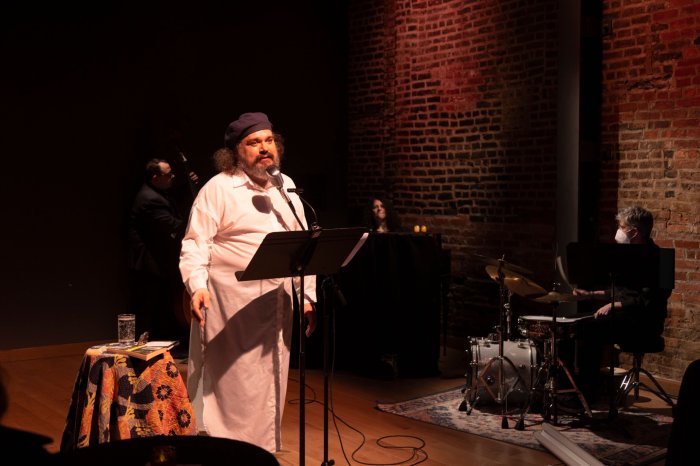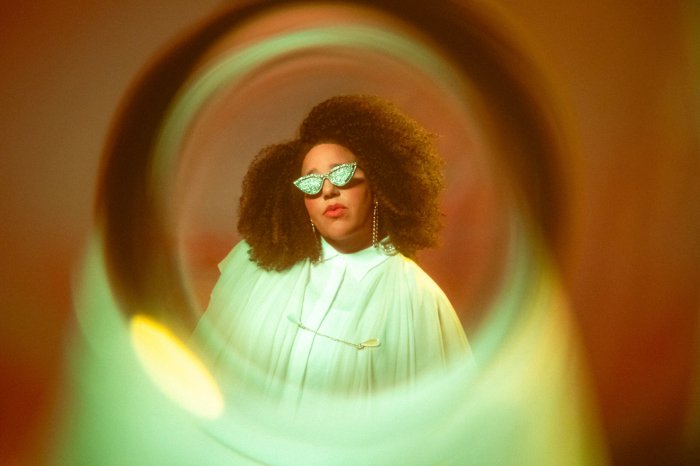BY JAMES JORDEN | John Doyle's new staging of Britten's “Peter Grimes” at the Metropolitan Opera sinks without a trace – how's that for poetic irony? – but thanks to conductor Donald Runnicles and a strong cast, the score survives the shipwreck.
Tenor Anthony Dean Griffey's sweet lyric tenor and vulnerable stage personality serves him well in portraying the poetic side of Peter Grimes, though I would prefer a more supported sound in “Now the Great Bear and Pleiades.” Griffey's straight-toned falsetto here suggested not so much a touch of the poet as a mild learning disability.
What Griffey could not do on February 28 was to suggest the fisherman's sudden fits of anger. The voice just doesn't have much heft above the staff, so the highest notes sound carefully managed – not a quality that lends itself to the portrayal of blind rage. Although Griffey is a tall and stocky man, his body language is noncommittal and tentative, the very opposite of ” hulking.”
PETER GRIMES Metropolitan Opera
Lincoln Center
Mar. 20, 24 at 8 p.m.
$15-$175; metopera.org
This Grimes seemed no more than a minor nuisance to the society of the Borough, certainly not nearly as dangerous as Bob Boles (big-voiced Greg Fedderly). Even the apprentice John (Logan William Erickson) seemed perfectly capable of standing up to Griffey. In the end, this wasn't Peter Grimes so much as Lennie Small in a sou'wester.
Strong cast, Donald Runnicles' baton dodge fate of John Doyle's staging
It may be that Griffey's dramatic choices were dictated by the stage director, John Doyle, who made his Metropolitan debut with this production, and, I think we may safely say, his farewell. A unit set (by Scott Pask) consisting of a towering planked wall served as a persuasive visual symbol of the closed minds of the Borough, but Doyle overused the gimmick of having individuals pop out of windows and doors in the wall. To an American audience member of a certain age, this effect cannot help recalling “Rowan and Martin's Laugh-In.”
Even worse, the mechanism for opening and shutting functioned erratically, ruining the quiet ending of Peter's mad scene when Ellen (Patricia Racette) popped in like a giant cuckoo. Doyle's intention to strip the opera of overly fusty stage business is laudable, but surely it is a mistake to give the impression that nobody in the Borough actually works for a living. A scene of net-mending women, stripped of its nets, looks like nothing more than a lot of chorus ladies sitting around waiting for a cue. Since even the principals only rarely glanced at each other, the cumulative effect was of a semi-staged concert performance.
The director reserved the greatest howler of the production for the final moments of the opera. As the Borough sang of the beginning of yet another day, the wall unit rose, revealing skeletal scaffolding where a dozen or so models posed in trendy modern dress. Was this tableau meant to evoke our current generation of LGBT youth, driving home the message that, well, discrimination isn't nice or something? We'll never know, since, according to eyewitnesses, both scaffolding and models vanished by the second night of the run.
The production cannot quite be called a fiasco because for most of the evening it was so dull and uneventful that it failed to distract from the superb playing of the Met orchestra under the direction of Donald Runnicles. Certainly this orchestra is a virtuoso group, capable of the greatest technical precision, but Runnicles elicited a leaner, tangier sound than we ordinarily hear. In the “Dawn” and “Moonlight” music (familiar from the “Four Sea Interludes”), Runnicles achieved a cool and unsentimental clarity of texture for which the orchestra might strive the next time they play “Pelléas et Mélisande.”
Racette brought her familiar musicianship and sweetness of timbre to the role of Ellen, though she tended to recede dramatically. Veteran Felicity Palmer (Mrs. Sedley) and debuting Teddy Tahu Rhodes (Ned Keene) added vocal and theatrical bite, but the usually vivid Jill Grove made little of Auntie. The role of Balstrode (affectless and distant in this staging) offered few vocal opportunities for Anthony Michaels-Moore's warm baritone.
James Jorden is the editor of parterre.com.

































